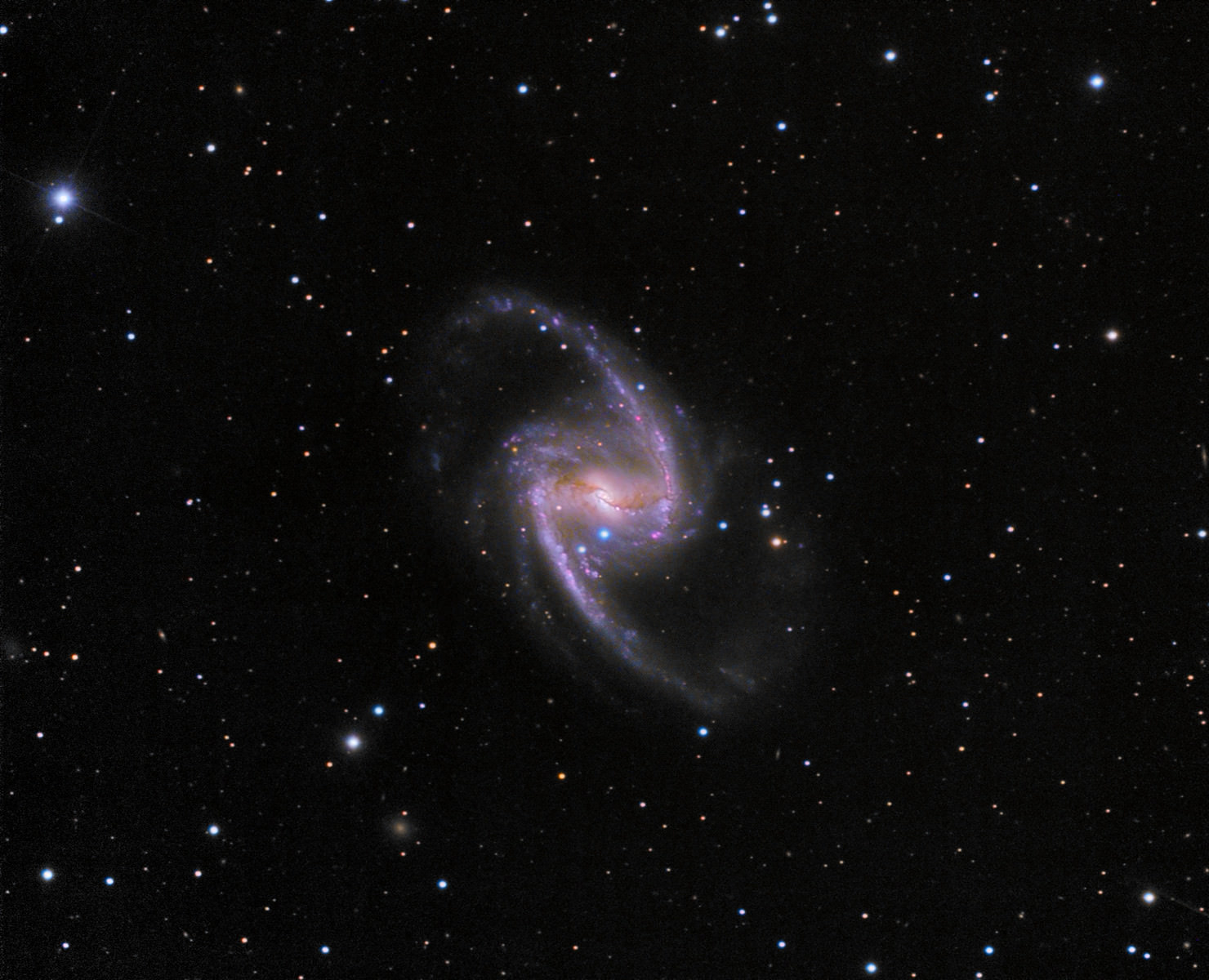Supernova 2012fr in NGC 1365. It is the bright blue “star” directly below the galaxy core. Credit: Rolf Wahl Olsen. Click the image for larger version.
A very bright supernova has shown up in NGC 1365, the galaxy also known as the Great Barred Spiral Galaxy, visible now for southern hemisphere observers. This already elegant galaxy lies about 56 million light-years away in the constellation Fornax. The supernova, a type Ia, was discovered by Alain Klotz with the TAROT telescope at the La Silla Observatory in Chile on October 27, 2012. “The supernova is a very nice addition to the already highly photogenic galaxy,” said Rolf Wahl Olsen, who took the gorgeous image above. “I’m amazed by how blue it is; it’s really intense.”
Supernova 2012fr is the bright and intensely blue star directly below the galaxy core. Olsen said that as of November 10, 2012 the supernova appeared to be nearing its peak, with an R magnitude of 11.90.
“To get an idea of how bright this event is we can calculate the absolute magnitude M of the supernova using the following formula where m is the apparent magnitude and D the distance in parsecs: M = m – 5(log10(D) – 1),” Olsen wrote. “This gives an absolute magnitude of -19.27 for SN2012fr. This means that if the supernova had occurred at a distance to us similar to Betelgeuse (643 light years), then its apparent magnitude would be -12.80, same as the full Moon!”
Details about Olsen’s image:
Date: 7th and 9th November 2012
Exposure: LRGB: 205:57:56:51m, total 6hrs 9mins @ -30C
Telescope: 10″ Serrurier Truss Newtonian f/5
Camera: QSI 683wsg with Lodestar guider
Filters: Astrodon LRGB E-Series Gen 2
Taken from his observatory in Auckland, New Zealand
See more of Olsen’s astrophotography at his Flickr page.


I calculate the redshift to be z = .0034, which is not sufficient to use this SNI standard candle to measure dark energy. However, this does probably help calibrate the SNI standard candle.
LC
Not only visible from the southern hemisphere, it’s observable from as north as Phoenix and perhaps even further.